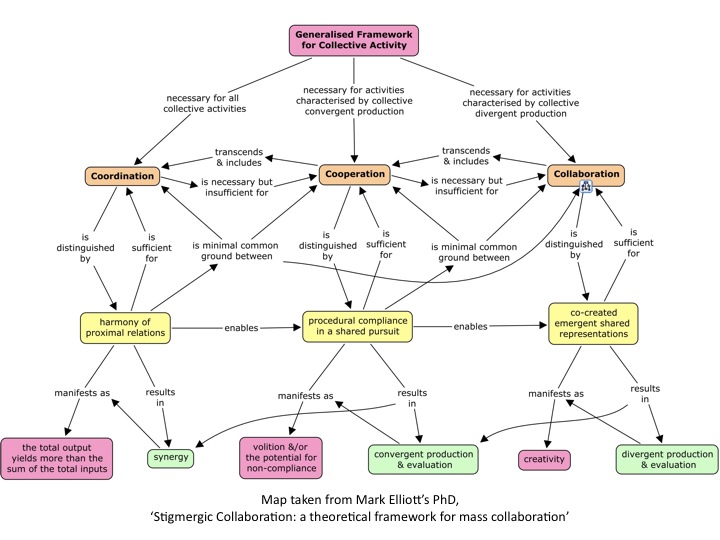The below framework was built upon a background of investigation into cooperative and collaborative processes, etymology of the terms, and a wide range of research conducted in many fields dealing with collaboration and cooperation. It aims to provide a generalised framework for collective activity applicable in any and every human context where such activities occur.
Coordination
Coordination yields outcomes that are greater than the sum of its parts by bringing together disparate, collectively produced elements into a common space (like the way a search engine uses keywords to bring together webpages and resources on the Internet).
Cooperation
Cooperation provides value to members of a group who adhere to a linear, predetermined set of rules (a set of instructions) that enable the individuals’ input to be aggregated so as to form a net gain (like a corporation’s profit, the results of a survey, or more efficient resource usage through recycling).
Collaboration
Collaboration is the co-creation of shared understandings. This process is often supported and expanded by the use of a shared medium or workspace (such as a wiki, office, or collection of documents) to capture and expand the development of many ideas from multiple contributors. In order to gain the synergistic benefits of collaboration, is important that all contributors have ‘add/edit/delete’ rights in the workspace enabling free interaction and influence between ideas and contributions. Such environments are often highly dynamic, as small changes made by one participant can have ‘butterfly effects’ upon other areas and therefore influence the entire work’s meaning and interpretation.
Here is a process map that shows in more technical detail the relationships between these three processes and their core characteristics.

